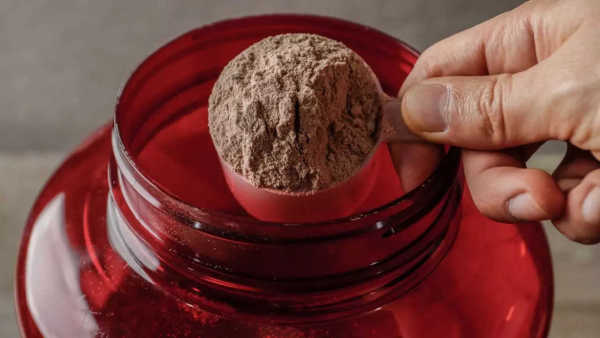Heavy metals lead and cadmium detected in protein powders; highest amount in these varieties

Protein powders have emerged as the trusted supplements to build muscles and boost satiety for highly active people and busy professionals. However, as per a new investigation, many commercially available protein powders have worrying amounts of heavy metals like lead and cadmium. The highest amounts of lead and cadmium has been found in plant-based, organic and chocolate-flavored products.
While many consider organic options healthier, the presence of heavy metals make them more toxic than normal varieties. The report by the Clean Label Project released on January 9 found that 77% of plant-based protein powders, 79% of organic protein powders and 65% of chocolate-flavored protein powders tested above California Proposition 65 safety thresholds for toxic metals.
"The study’s findings highlight that despite the growing health-conscious market, many products may contain elevated levels of contaminants not reflected on traditional nutrition labels," the report read.
Tests were done on 160 products from 70 top protein powder brands, representing 83% of the market, as per the report.
Rice, peas, soy protein powders have triple the lead compared to whey products
The report mentions that protein powders made from plants like rice, peas or soy have been found to contain triple the amount of lead compared to products made from whey.
Plants tend to absorb heavy metals from the planet’s crust but may contain more levels if grown in soil that is further contaminated by mining, industrial waste, and some pesticides and fertilizers.
Chocolate-flavoured protein powders raise concern

Chocolate is one of the preferred flavors for many due to its irresistible taste. However, the reports say there are alarming levels of heavy metals in this variety.
"Chocolate-flavored protein powders contained four times more lead and up to 110 times more cadmium than vanilla-flavored powders," said Jaclyn Bowen, executive director of the Clean Label Project.
While chocolate is high in flavonoids, antioxidants and other beneficial minerals, dark chocolate, or cacao, has been found to contain high levels of heavy metals.
"With the lack of comprehensive federal regulations specifically addressing heavy metals in dietary supplements, it is critical that the industry independently takes proactive measures," the report read.
What happens when lead and cadmium enter our body
Studies have found a direct link between its intake from food to up to a three-fold increase in cancer mortality and up to a four-fold increase in CKD (Chronic Kidney Disease) risk.
Heavy metals from contaminated foodstuff and water enter the body through the digestive tract where they are absorbed into the bloodstream through the intestinal membrane. Once these heavy metals are integrated within the body, the majority are eliminated by the renal system within the urine, but a smaller portion remains within the bloodstream and/or is re-absorbed by the kidneys and eventually accumulates within the liver, kidneys, and bones, as per a report published in Nature.
Chronic exposure to low levels of lead, cadmium and arsenic through commonly used household items, air, water, soil and food is linked with an increased risk of cardiovascular disease, according to a new American Heart Association scientific statement published in the Journal of the American Heart Association, an open access, peer-reviewed journal of the American Heart Association.
(Picture courtesy: iStock)
 Protein powders have emerged as the trusted supplements to build muscles and boost satiety for highly active people and busy professionals. However, as per a new investigation, many commercially available protein powders have worrying amounts of heavy metals like lead and cadmium. The highest amounts of lead and cadmium has been found in plant-based, organic and chocolate-flavored products.
Protein powders have emerged as the trusted supplements to build muscles and boost satiety for highly active people and busy professionals. However, as per a new investigation, many commercially available protein powders have worrying amounts of heavy metals like lead and cadmium. The highest amounts of lead and cadmium has been found in plant-based, organic and chocolate-flavored products.
